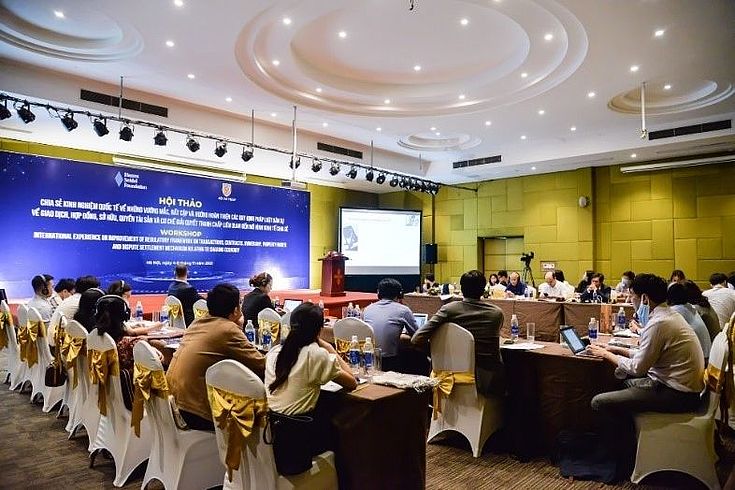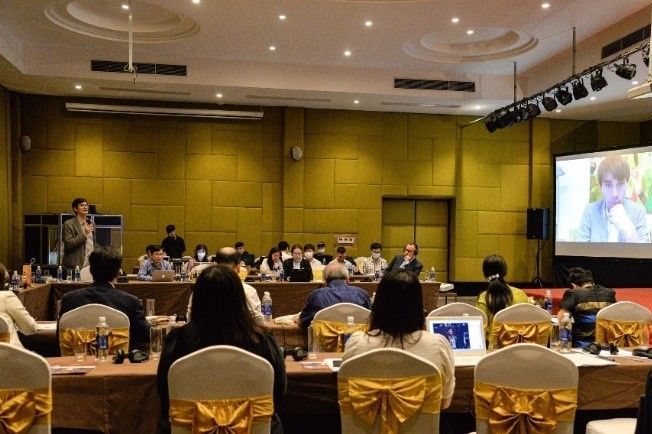Hybrid workshop on Sharing Economy
Workshop on “improvement of regulatory framework on contracts, property, ownership and dispute settlement mechanism relating to sharing economy”
Offline and online participants of the workshop
HSF
In the Vietnamese context, sharing economy is defined by the Ministry of Planning and Investment (MPI) as a peer-to-peer business model sharing goods and service capacity through a Platform facilitation. Currently, Vietnam faces major challenges in monitoring and governing the sharing economy. These constraints include a lack of a regulatory framework, an unmet demand to improve the number of relevant rules and laws, and a lack of data protection for this new business model.
Participants and speakers intensively discussed legislative issues in the sharing economy over the course of the two-day dialogue. Several key takeaways have been withdrawn. To begin with, terminology matters or there is a critical need to differentiate between different types of platform economies such as sharing economy, gig economy, and related models because they present different social and regulatory challenges. Furthermore, speakers urge policymakers to focus not only on specific areas of law such as data protection and labour code, but also on how to connect them all as a unified legislative process.
Q&A session between Vietnamese legal experts and Mr. Jonas Pentzien, Senior Researcher, Institute for Ecological Economy Research (Berlin)
HSF
The third key takeaway refers to the recognition of the host country’s institutional path dependencies and policy legacies in shaping its responses to sharing economy. Lastly, policymakers will need to develop a proactive policy mix that reduces platform providers' market strength, promotes government platforms, and establishes public data pools.
HSF Vietnam invited 2 international experts to provide input to the discussions. While Jonas Pentzien of the Institute for Ecological Economy Research Berlin focussed on a comparative perspective of how different countries’ regulatory approaches, Malthe Munkoe of BusinessEurope elaborated European approaches with regards to liability, data protection and insights of the new EU Digital Markets and Services Act.
Nguyen Chi Lan, Deputy General Director of the Department of Legal Civil and Economic Affairs, emphasized the importance of more research and engagement with a broader range of stakeholders in order to fully comprehend the legal elements of the sharing economy and how to establish appropriate legislative frameworks.
HSF Vietnam looks forward to continuing to support MOJ on this topic.


